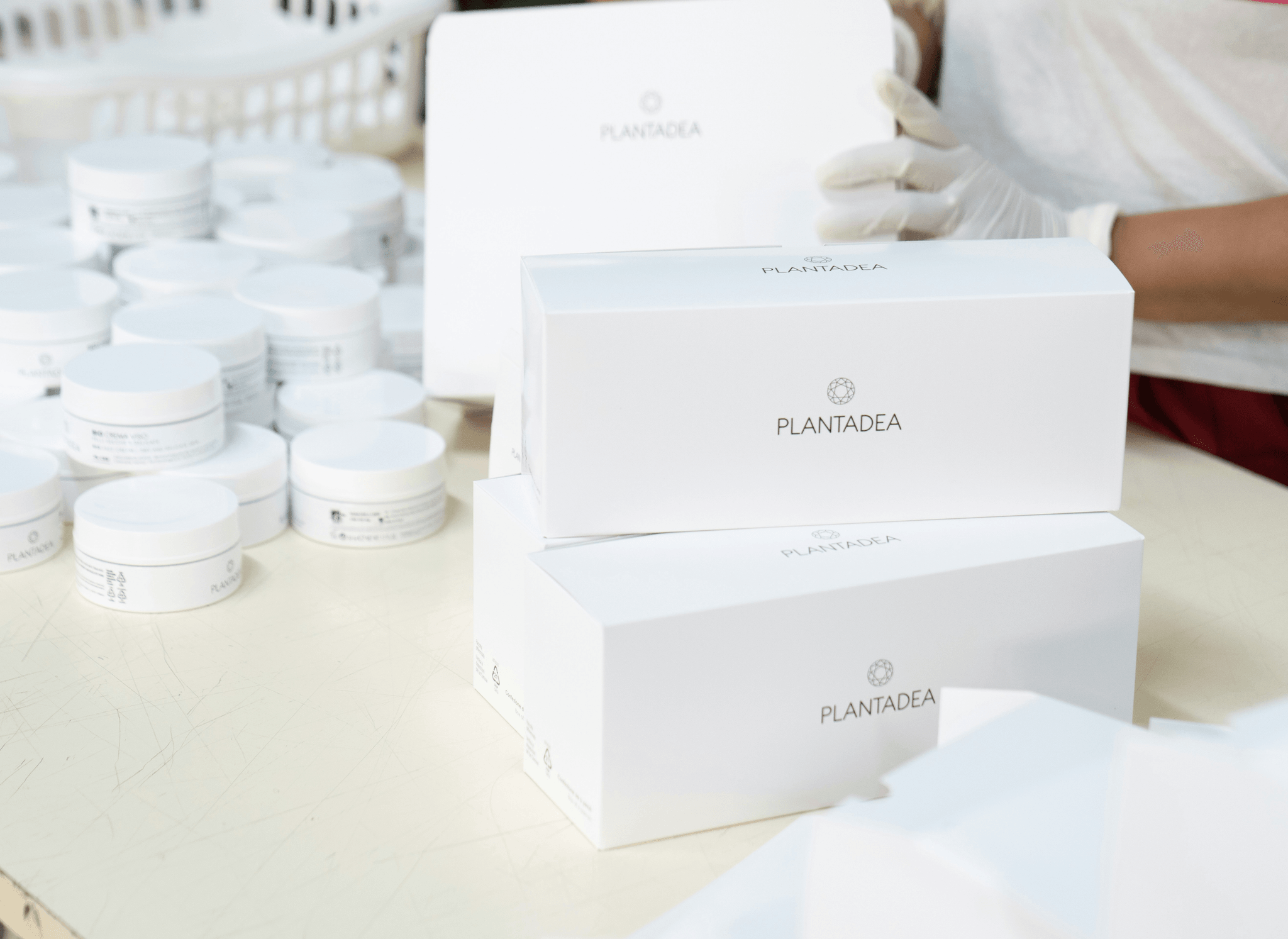Introduction
In the ever-evolving landscape of consumer goods, private brand products have emerged as a dynamic force driving innovation and competition. Retailers are increasingly recognizing the potential of these brands to not only enhance their market presence but also to cater to shifting consumer preferences. With a focus on quality, affordability, and unique offerings, private brand products are reshaping how consumers perceive value in their shopping experiences.
Exploring Private Brand Product Innovations
The innovation behind private brand products has taken center stage as retailers strive to differentiate themselves in a crowded marketplace. Companies like SSOURCING INC. are at the forefront of this transformation, leveraging cutting-edge strategies to develop products that resonate with modern consumers. From unique flavors to innovative packaging solutions, private brands are becoming synonymous with creativity and consumer-centric design.
The Rise of Sustainability in Branding
As environmental concerns become more pressing, sustainability has evolved from a buzzword into a core principle for many private brand products. Consumers are increasingly seeking out brands that reflect their values, prompting retailers to adopt eco-friendly practices in product development and sourcing. This shift towards sustainable branding not only enhances brand loyalty but also positions private labels as leaders in responsible consumption.
Consumer Behavior Shifts and Private Brands
The landscape of consumer behavior is rapidly changing, with more shoppers gravitating towards private brand products that promise both quality and ethical considerations. Factors such as price sensitivity and the desire for transparency have led consumers to explore alternatives outside traditional name brands. As they become more informed about what they purchase, retailers must adapt their strategies accordingly—offering compelling reasons for consumers to choose their private labels over established competitors.
The Evolution of Private Brand Products

The landscape of private brand products has undergone a remarkable transformation over the decades. Once viewed as lower-quality alternatives to national brands, private labels have now carved out a reputation for innovation and value. This evolution reflects broader shifts in consumer preferences, market dynamics, and the strategic initiatives of retailers like SSOURCING INC., who are keen to leverage their unique positioning.
Historical Context of Private Branding
Private branding dates back to the early 20th century when retailers began offering their own products to compete with established brands. Initially, these private brand products were often seen as budget options, appealing primarily to cost-conscious consumers. However, as retail giants recognized the potential for higher profit margins and better control over product quality, they started investing in branding strategies that elevated these offerings beyond mere price competition.
Successful Examples: Costco's Kirkland Signature
Costco's Kirkland Signature is a shining example of how a private brand product can achieve widespread acclaim while maintaining affordability. Launched in 1995, Kirkland has become synonymous with quality and value, often outperforming national brands in taste tests and consumer satisfaction surveys. This success story illustrates that with the right strategy—focusing on quality ingredients and sustainable practices—private brand products can not only thrive but also foster customer loyalty that rivals traditional brands.
Lessons from Amazon's Private Label Strategy
Amazon's approach to private label strategy provides valuable insights into creating successful private brand products in today's competitive market. By utilizing data analytics to identify gaps in consumer demand, Amazon effectively tailors its offerings to meet specific needs—from food items under the AmazonBasics label to everyday essentials across various categories. This data-driven model emphasizes how understanding consumer behavior can enhance product development and drive sales for private brand products.
Sustainability: The Heart of New Brands

In today's marketplace, sustainability has become a cornerstone of private brand product innovations. As consumers increasingly prioritize eco-friendly options, brands are responding by integrating sustainable practices at every level of production and packaging. This shift not only meets consumer demand but also enhances brand loyalty and trust, making sustainability a vital component of any successful private label strategy.
Eco-Friendly Packaging Innovations
One of the most significant advancements in private brand product development is the rise of eco-friendly packaging innovations. Companies are now exploring biodegradable materials, recyclable designs, and minimalistic packaging to reduce waste and environmental impact. For instance, SSOURCING INC. is committed to leveraging such innovative approaches to create private brand products that resonate with environmentally conscious consumers while ensuring functionality and aesthetic appeal.
Moreover, brands are embracing transparency in their packaging choices by clearly communicating their sustainability efforts on labels. This not only informs consumers about the ecological benefits but also builds a connection based on shared values between brands and customers. As more companies adopt these practices, we can expect to see a ripple effect throughout the industry that prioritizes sustainable solutions for all private brand products.
Case Study: Unilever’s Sustainable Private Brands
Unilever serves as an exemplary case study in the realm of sustainable private brand products. With initiatives aimed at reducing plastic waste and promoting responsible sourcing, Unilever has made significant strides in aligning its private label offerings with consumer expectations for ethical products. Their commitment to sustainability is evident in brands like Love Beauty And Planet, which focuses on using recycled materials for packaging while also promoting natural ingredients.
This approach not only appeals to eco-conscious shoppers but also positions Unilever as a leader in corporate responsibility within the retail space. By showcasing how their private brand products contribute positively to both society and the environment, Unilever effectively enhances its reputation while driving sales growth across its portfolio. Other companies looking to enter or expand within this market can draw valuable lessons from Unilever's successful integration of sustainability into their core business strategies.
Consumer Demand for Ethical Products
The demand for ethical products is reshaping how businesses approach their private brand product lines today more than ever before. Consumers are increasingly scrutinizing brands' environmental footprints and social responsibilities, leading them to favor those that align with their values over traditional name-brand options. This shift presents an opportunity for retailers like SSOURCING INC., who can capitalize on this trend by developing innovative private label offerings that emphasize ethical sourcing and sustainable practices.
Brands that prioritize transparency regarding ingredient sourcing or labor practices tend to foster stronger connections with consumers who value these principles highly; therefore, integrating ethics into branding strategies becomes essential for success in this competitive landscape. As awareness grows around issues such as climate change and social justice, it’s clear that consumers will continue pushing companies toward greater accountability when it comes to their purchasing choices—making ethical considerations key drivers behind future trends in private branding.
Health Trends Driving Product Development

In recent years, the demand for private brand products featuring organic and natural ingredients has surged dramatically. Consumers are increasingly seeking out options that align with their health-conscious lifestyles, prompting retailers to innovate and expand their offerings. This shift not only reflects a growing awareness of dietary choices but also emphasizes the importance of transparency in product sourcing and quality.
Organic and Natural Ingredients Surge
The rise in popularity of organic and natural ingredients is reshaping the landscape of private brand products. Shoppers are now more discerning than ever, looking for labels that boast clean ingredients without artificial additives or preservatives. Retailers like SSOURCING INC. have recognized this trend, leading to a proliferation of private label offerings that cater specifically to health-focused consumers who prioritize wellness in their purchasing decisions.
Market Leaders: Trader Joe’s and Whole Foods
Trader Joe’s and Whole Foods have emerged as market leaders in the realm of private brand products centered around health trends. Both retailers have successfully cultivated a loyal customer base by offering high-quality organic options at competitive prices, making healthy eating accessible to a wider audience. Their commitment to transparency and sustainability resonates with consumers, positioning these brands as benchmarks for others looking to enter the market with similar private label strategies.
Aligning with Health Conscious Consumers
Aligning product development with health-conscious consumer preferences is crucial for any retailer aiming to succeed in today’s marketplace. By focusing on organic ingredients, ethical sourcing practices, and nutritional transparency, companies can create compelling private brand products that attract discerning shoppers. SSOURCING INC.'s approach emphasizes this alignment by leveraging consumer insights to develop innovative products tailored specifically for those who prioritize their health without sacrificing taste or quality.
Technology Transforming Private Label Strategies
In the rapidly evolving landscape of retail, technology is not just a tool; it's a game-changer for private brand products. As brands strive to meet consumer demands and preferences, leveraging technology becomes crucial in product development and marketing strategies. This section delves into how big data, e-commerce, and innovative companies like SSOURCING INC. are reshaping the future of private brand products.
The Role of Big Data in Product Creation
Big data has revolutionized how private brand products are conceived and developed. Retailers can gather vast amounts of information about consumer behavior, preferences, and trends to inform their product creation processes. By analyzing this data, companies can identify gaps in the market and tailor their offerings to meet specific consumer needs—leading to more successful private brand products that resonate with shoppers.
Moreover, big data allows brands to monitor performance metrics in real-time, enabling them to make swift adjustments based on customer feedback or sales trends. This agility is particularly important for private brands as they compete with established names while trying to carve out their own niche in the market. Ultimately, the integration of big data not only enhances product innovation but also strengthens customer loyalty towards private brand offerings.
E-commerce and Private Brand Success Stories
The rise of e-commerce has opened new avenues for private brand products like never before. Online shopping platforms provide retailers with valuable insights into consumer purchasing habits while offering a broader reach than traditional brick-and-mortar stores can achieve. Brands that have embraced e-commerce have seen significant success with their private labels—think Amazon's extensive range or Walmart's Great Value line.
Success stories abound as companies leverage online channels to promote their exclusive offerings directly to consumers without intermediary costs eating into margins. With targeted digital marketing strategies and personalized shopping experiences, these brands have successfully captured market share previously dominated by national brands. The ability to adapt quickly within the e-commerce realm ensures that private label products remain relevant and appealing amidst shifting consumer preferences.
How SSOURCING INC. is Leveraging Technology
At SSOURCING INC., we're not just observing these changes; we're actively participating in them by leveraging cutting-edge technology for our private brand products. Our approach involves utilizing advanced analytics tools that sift through large datasets to pinpoint emerging trends before they hit mainstream consciousness—ensuring our offerings are always ahead of the curve!
Additionally, we harness e-commerce platforms effectively by crafting engaging online experiences tailored specifically for our target audience—making it easy for customers to discover our unique range of private label products at their convenience! By combining innovative tech solutions with strategic marketing initiatives, SSOURCING INC. is transforming how consumers perceive and engage with our private brands—ultimately driving loyalty in an increasingly competitive marketplace.
Global Expansion of Private Brands

The landscape of private brand products is rapidly evolving, particularly in emerging economies where consumer preferences are shifting. Countries like India, Brazil, and parts of Southeast Asia are seeing a surge in demand for affordable yet quality private brand offerings. This trend is not just about low prices; consumers are becoming more discerning, looking for value and quality that rival national brands.
Market Trends in Emerging Economies
Emerging economies are witnessing a remarkable shift towards private brand products as local retailers tap into the growing middle class. With increasing disposable incomes, consumers are seeking alternatives to traditional brands that offer both quality and affordability. This has led to a boom in private label offerings that cater specifically to regional tastes and preferences, often incorporating local flavors or ingredients.
In addition to affordability, sustainability is becoming a key driver in these markets. Consumers are increasingly aware of environmental issues and prefer private brands that prioritize eco-friendly practices such as sustainable sourcing and reduced packaging waste. As these trends continue to evolve, companies like SSOURCING INC. must stay ahead of the curve by developing innovative private brand products that resonate with these conscientious consumers.
Noteworthy Global Players: Aldi and Lidl
Aldi and Lidl have become household names in the realm of private brand products due to their strategic approach to market penetration across various countries. These discount retailers leverage their extensive supply chains to offer high-quality private label options at competitive prices, effectively challenging established national brands. Their success showcases how a commitment to value can drive consumer loyalty even in saturated markets.
Both Aldi and Lidl have made significant strides by focusing on product variety while maintaining stringent quality controls for their private brands. For instance, they often emphasize fresh produce or organic options within their product lines—aligning with modern health trends driving consumer choices globally. SSOURCING INC.'s focus on developing similar high-quality offerings could position it well alongside these giants as they expand further into new territories.
Strategies for Entering New Markets
To successfully enter new markets with private brand products, companies must adopt tailored strategies that consider local consumer behavior and preferences. Conducting thorough market research is crucial; understanding regional tastes can significantly influence product development decisions—ensuring alignment with what consumers truly desire from their shopping experience.
Additionally, forming partnerships with local suppliers can enhance trustworthiness while also supporting community engagement—a factor increasingly important for today’s ethically-minded shoppers. SSOURCING INC.'s ability to source locally not only fosters goodwill but also allows for agile responses to market demands as they arise.
Finally, leveraging technology will be essential in tracking trends and optimizing inventory management for new market entries focused on private brand products. By utilizing big data analytics effectively, companies can predict shifts in consumer preferences before they happen—staying one step ahead of the competition while delivering exactly what customers want when they want it.
Conclusion

In summary, the landscape of private brand products has undergone a remarkable transformation. The interplay of sustainability, health trends, and technological advancements has reshaped consumer expectations and brand strategies alike. As we look ahead, it’s clear that private brands are not just surviving; they are thriving in an ever-evolving market.
Key Takeaways on Private Brand Product Trends
Private brand products have emerged as significant players in the retail space, often outpacing traditional brands in innovation and consumer appeal. Sustainability is no longer a buzzword but a core component of successful private label strategies, with companies like Unilever leading the charge toward eco-friendly practices. Additionally, the shift towards health-conscious choices has prompted retailers to rethink their product offerings, ensuring that private brands align with consumers’ growing demand for organic and natural ingredients.
The Future of Brand Loyalty and Private Labels
Looking forward, brand loyalty is likely to evolve alongside the rise of private label products as consumers become more discerning about their purchases. With companies like SSOURCING INC. leveraging technology to enhance product development and customer engagement, private brands will continue to foster strong relationships with their audiences. This shift suggests that while traditional branding may still hold value, the future will increasingly favor innovative private labels that resonate with ethical consumption and personalized experiences.
Final Thoughts on Innovation in Branding
Innovation in branding is not merely about creating new products; it’s about understanding consumer needs and responding effectively to them through strategic initiatives in private branding. As we witness the global expansion of these brands into emerging markets led by players like Aldi and Lidl, it becomes evident that adaptability is key for survival in this competitive landscape. Ultimately, the success of private brand products hinges on their ability to embrace change while remaining true to their core values—sustainability, health consciousness, and technological integration.

